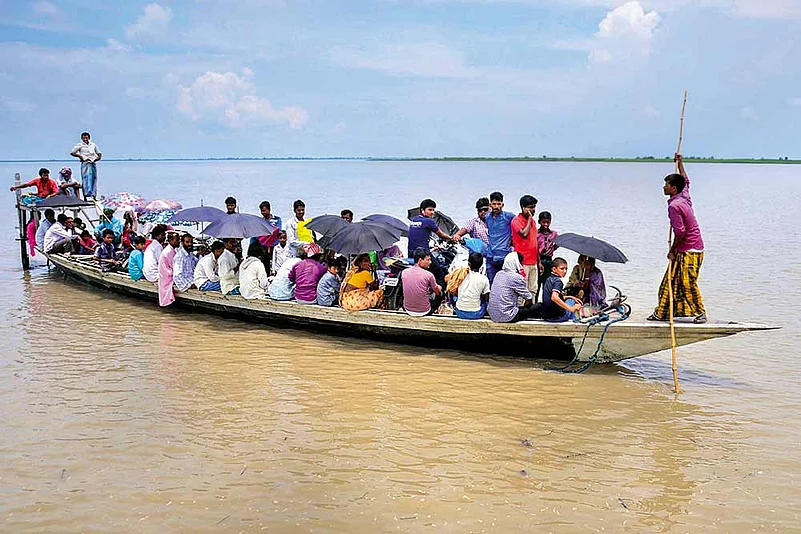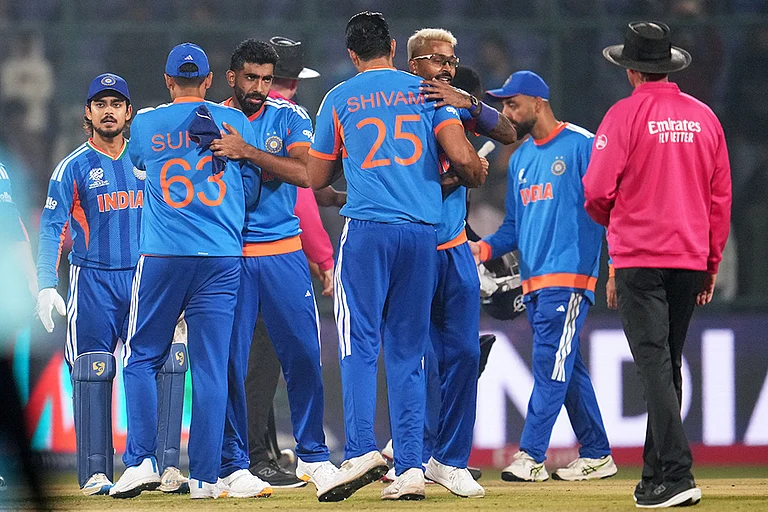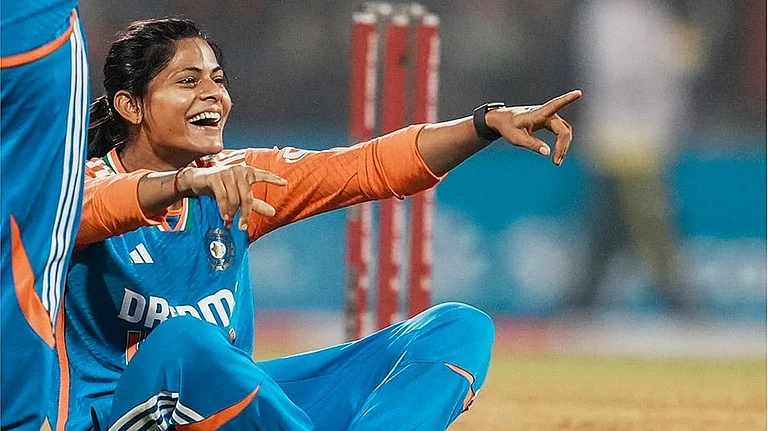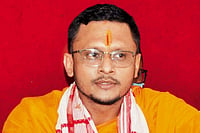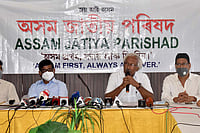The National Register of Citizens (NRC), the final updated version of citizenship records in Assam, will be published on August 31 “irrespective of who likes it or who doesn’t”, as the Supreme Court put it last week. But for a large number of people—out of a rough estimate of around four million expected to be stripped of their Indian citizenship—it will only reboot a long-drawn-out process that has haunted them for years. For those who call themselves khilonjiya or native Assamese, the final NRC should have meant a closure to the single-most important issue for the state—illegal immigration. For the so-called neutral observers in this great game, it’s a humanitarian crisis of immense magnitude, an alleged witch-hunt by a right-leaning government against the Muslim community.
The biggest question, perhaps, lies in what has not been said yet: what will happen to the people who lose the battle? The government has not spelt it out so far. Bangladesh—the country from where the illegal settlers are said to have travelled—has consistently denied illegal entry of its citizens into India. Nor can the government keep so many people in detention centres or jails. So the question remains, where will the people go? Solicitor general Tushar Mehta refused to answer the question as the “matter is sub judice”; the Supreme Court is monitoring the NRC update process. “It is not appropriate to pre-empt or comment on the final outcome. I am sure the government will deal with the matter with sensitivity and in keeping with conventions,” he tells Outlook.
Under the 1985 Assam Accord, the result of a six-year-long mass movement against illegal immigration, all those who entered the state after March 24, 1971 are to be detected and deported. And the updated NRC, a document unique to Assam, is expected to verify the genuine Indian citizens, which in turn is expected to identify all those who had entered India after the 1971 cut-off date.
In a statement this week, the Centre said the final NRC will not be the end of the road for the people left out—it has decided to increase the deadline for filing appeals against non-inclusion in the NRC from 60 to 120 days. The decision was taken following a meeting between Union home minister Amit Shah and Assam chief minister Sarbananda Sonowal in Delhi. “Non-inclusion of a person’s name in NRC does not by itself amount to him/her being declared as a foreigner,” the government said.
People left out of the NRC can approach one of the foreigners tribunal (FTs)—quasi-judicial courts empowered to hear appeals of people with suspected nationality—which will give its verdict within 120 days. Assam will set up 200 additional FTs from September 1 to bolster the existing network of 100 tribunals across the state. The Centre plans to set up a thousand FTs to dispose of cases after the final NRC is published. “It will be wrong to assume that all those people whose names are not included in the final NRC are foreigners…all those who are excluded would get the opportunity to file appeals against the non-inclusion of their names in the appropriate foreigners tribunal. If still aggrieved, they may approach the high court and Supreme Court, challenging the verdict of the foreigners tribunal,” says lawyer Syed Burhanur Rahman.

Security personnel guard the NRC office in Guwahati.
For the BJP governments—at the Centre and the state—the final NRC list may raise different problems as it has become increasingly evident that more Hindus than Muslims could be stripped of their citizenship. Granting Indian citizenship to “persecuted Hindus” of three neighbouring countries—Bangladesh, Pakistan and Afghanistan—has been one of its major election issues. Last year, the Centre had introduced the Citizenship Amendment Bill to ease the norms for granting citizenship to these “persecuted” people. The bill had angered large sections of the people in Assam and led to violent protests. Though the bill lapsed early this year, the government is in a much comfortable position in the Rajya Sabha now to ensure passage of a new bill.
Sarbananda Sonowal hinted as much this week when he said that the government could opt for legislative means to deal with wrongful exclusion of genuine citizens or wrongful inclusion of foreigners in the NRC. Both the Centre and state government had sought permission from the Supreme Court for re-verification of 20 per cent of the draft NRC data in districts bordering Bangladesh and 10 per cent in remaining areas, citing possible erroneous inclusions and exclusions. However, the court turned down the pleas.
The government’s claim that the NRC is “flawed” only buttresses allegations by activists and opposition parties of an unfair process that have put millions of poor and uneducated people at the mercy of officials and courts. Former chief minister Tarun Gogoi of the Congress has accused the BJP of turning the NRC into “waste paper” by trying to appease its Hindu vote bank. The BJP counters that successive Congress governments had shied away from updating the NRC—pending since 1985—to protect its Muslim “vote bank”.
Beyond the rhetoric—political or otherwise—lies a long road ahead for all stake-holders in this seemingly neverending saga of identity and survival. It’s the story of people caught in the cross-currents of political and social upheavals. A story of people trying to find which side of a man-made border they really belong to. Sometimes, the end is just the beginning. This a story whose end is yet to be written.
By Abdul Gani in Guwahati with inputs from Puneet Nicholas Yadav






